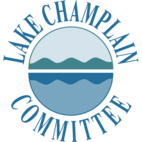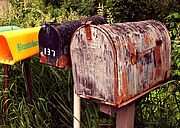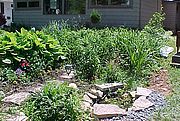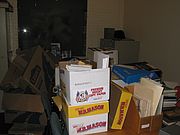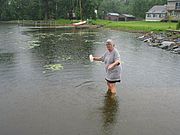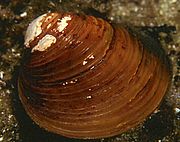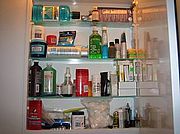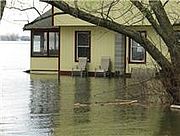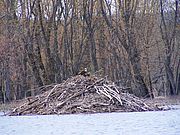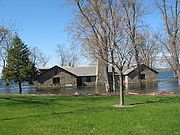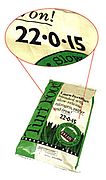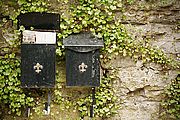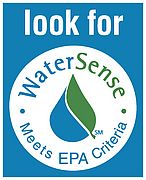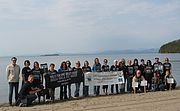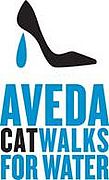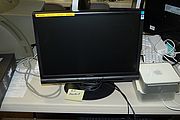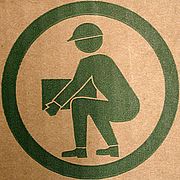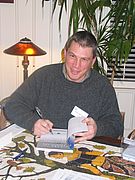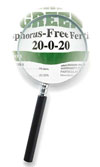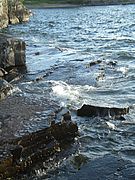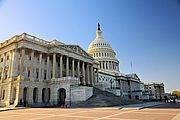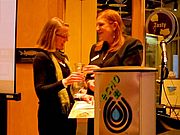
We’re delighted to note that LCC’s Blue Green Algae monitoring program received the Citizen Scientist Green Mountain Environmental Award. The awards were created by ECHO Lake Aquarium and Science Center and FreePressMedia to recognize environmental stewards and their initiatives that have shaped, inspired, encouraged and supported successful and long-term leadership of Vermont’s rich and diverse natural environment. LCC’s monitoring program provides weekly input to health managers during the summer recreation season about the location, density, and persistence of algae blooms and algae toxins. The information helps public health managers make informed decisions about when and where algae blooms may require beach closings. The volunteers develop a greater knowledge of the lake and become resources within their community for anyone with questions about algae blooms. Additionally, the data gathered by volunteers is adding to the understanding of what triggers algae blooms so we’re better able to prevent them in the future.
“You and the Lake Champlain Committee have been vital to the preservation of our great Lake. The citizen volunteer algae monitoring program is just one example of decades of environmental leadership by LCC,” noted US Senator Patrick Leahy in a congratulatory letter to LCC Executive Director Lori Fisher. “Thank you for your many contributions.” LCC extends our deep appreciation to ECHO and FreePressMedia for the award and $1,000 cash prize to support our work and to our dedicated blue green algae citizen monitors and partner agencies. Hats off to Dr. Mary Watzin and Susan Fuller of the Rubenstein School of Environment and Natural Resources at the University of Vermont, Linda Boccuzzo of the Vermont Department of Health, Angela Shambaugh of the Vermont Department of Environmental Conservation, and Bill Howland, Colleen Hickey, Eric Howe, Kathy Jarvis, and Meg Modley of the Lake Champlain Basin Program. There wouldn’t be a monitoring program without our dedicated group of “citizen scientists”. We applaud past and present volunteers Anne August, Jennifer Bowman, Jim and Sally Brabham, Catherine Brooks, Al Carpenter, Chris Case, Carson Cornbrooks, Ed and Joan Comolli, Deborah Diemand, Gerry Duprey, Marc Eisenhower, Ryan Garber, Lawrence Gillet, Dave Greenough, Sally Littlefield, Joan Louie, Bill Magnus, Bob Martell, Jon McBride, Gary Molinski, Jerry Morong, Bob Murphy, Nate Otis, Martha Perry, Keith Peterson, Larry and Jeannine Pratt, Mary Simmers, Mike Roach, Micah Rose, Stan Tuller, Mark Sweeney, Cheryl Ward, Doug Ward, and Albee Westover. Read...
If you’ve had an address change recently, please send us an email so we can update your files and ensure you receive news on lake issues and LCC’s work. Our primary form of communication with members is through email. By mailing electronically we save time and resources and reinforce the stewardship ethic of our mission. We don’t give away or sell email addresses. To ensure that our email messages get through to your inbox, please add lcc@ lakechamplaincommittee.org and the domain enews.lakechamplaincommittee.org to your safe/allowed list and address book. Thanks! Read...
Want to add to your properties’ curb appeal and protect Lake Champlain and other water ways? The Lake Champlain Committee encourages designing a water-smart yard that puts nature to work creating healthy lawns and gardens. Click on the title for resources and tips. Read...
We spent much of the last month moving the Lake Champlain Committee office. The move gave us an opportunity to weed through our files and cull much of the material that no longer seems relevant. It’s amazing how many papers accumulate over time. Homes and offices build up waste and periodic cleansings rid the space of excesses. So what about the lake? What happens to the excesses that fill-up Lake Champlain?
For over 10,000 years, sediments have been pouring into Lake Champlain. The pace of sedimentation has increased dramatically with development of the landscape, but it is not a new phenomenon. Much of what is now the Champlain Valley used to be part of Lake Champlain. Slowly, the lake fills in. Read...
Focus some of your spring cleaning efforts on shoreline areas this year. Lake flooding has washed up tons of debris around the lake. Extra hands will be needed to clear trash and prepare recreation areas for summer. Consider contacting the managers of a public lakeside recreation area near you and volunteering your services for when the waters recede. Read...
LCC is gearing up for the 2011 blue-green algae monitoring season. The LCC shoreline monitoring has been on-going since 2004. Our monitoring efforts concentrate on Missisquoi Bay and the northern lake where we know blooms are most common and most severe. We also have a limited number of sampling locations along the Main Lake and South Lake. If you are interested in conducting regular visual observations of water quality in your section of the lake contact LCC staff scientist Mike Winslow. Read...
Efforts are underway in Lake George to use benthic mats to exterminate a population of Asian clam. The Asian clam, Corbicula fluminea, is a small bivalve that is native to southern Asia, the eastern Mediterranean, and Australia. They are small, usually less than 1.5 inches in size, and have a light tan or brown shell (color varies) with distinctive concentric ridges. The Lake George population was discovered just last year, and is thought to be small enough that control efforts can lead to complete eradication. The benthic mats used for control are rolled out on the lake bottom and weighted down with steel rebar. The mats are expected to suffocate any Asian clams beneath them within 45-days. Read...
Near the end of the session a bill was introduced that proposed a number of programs and changes designed to improve water quality and the management of Lake Champlain. The specifics of the bill will clearly change as it moves forward. The bill was meant to begin a conversation about what legislative changes might be necessary. LCC has begun discussions with other groups about how to best shape this bill in the next year of the biennium. Read...
The Vermont House passed a bill that would strengthen participation of citizens in environmental enforcement decisions. The bill allows a 30-day public comment period on any penalties assessed with regard to environmental violations, and allows for anyone who does comment to challenge overly lenient penalties that might be assessed. The bill still needs to be considered in the Senate next year. Read...
The Vermont legislature passed a bill that will help facilitate drug take-back programs at pharmacies. Unwanted pharmaceuticals present a potential water quality hazard when they are carelessly dumped down the toilet. In an ideal situation consumers would be able to return unused pharmaceuticals to the pharmacy where they purchased them for proper disposal. However, such drug take-backs are complicated by a maze of federal and state regulations designed to keep the drugs off the black market. LCC ensured that voices of local law enforcement were heard when the bill was first considered in the House. The new Vermont law assures that consumers can lawfully deliver unused medications to properly authorized authorities for the purpose of disposal. Our thanks to Representative David Deen for sponsoring this bill and shepherding it through the Statehouse. Read...
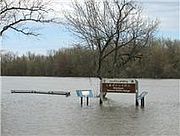
Lake flooding presents numerous recreational hazards. Incredible amounts of debris, large litter and logs, now float around the lake. Some normally exposed structures, like the Burlington breakwater, are under water. Many of Lake Champlain’s sand beaches are submerged and closed for the next several weeks. Damages can’t be fully assessed and clean up activities and repairs can’t begin until the waters recede. Additionally, water temperatures remain on the low end of average for this time of year, between 40 and 50º F. Submersion in waters that cold lead to exhaustion or unconsciousness in 30 to 60 minutes. Check in with the health department and local recreation department before taking to the water. Cold, turbid, debris-ridden water should be avoided. All boaters on the lake should exercise extreme caution. To further complicate matters, many of the lake access areas are underwater so launching a boat will present a problem. The National Weather Service office in Burlington discourages recreational boating at this time. Read...
Lake Champlain remains well above flood stage though it has receded from its maximum of 103.2’, reached on May 6th. At that height the lake contained an extra 867 billion gallons of water and the area of the lake increased by 15%. During the last week of April, the Winooski River carried half its usual annual load of phosphorus. On a single day, April 26th, the Winooski’s phosphorus discharge was two times the annual discharge of all Vermont wastewater plants combined. Stream gauges can not begin to estimate the amount of sediment and phosphorus deposited directly to the lake by shoreline erosion. We will continue to provide regular updates on the flooding impacts as the waters recede. Read...
Lake flooding presents a mixed bag for the animals of the region. Some fish species will likely benefit from the extra area for spawning. In particular, pike, pickerel, and carp spawn in shallows along the shore and the extra water increases the area they can access. Ducks have been feeding in flooded fields also taking advantage of the space available to them. Mosquitoes should flourish with all the extra water available to them for breeding. Many animals are less lucky. Fish and other animals taking advantage of the high water can become trapped when the water finally does recede. High turbidity from all the silt and sediment flowing in makes it more difficult for animals that hunt in the water by sight to see their prey. Many mussels may have been smothered by all the extra sediment washing into the lake. Read...
The unprecedented flooding and high lake levels have closed beaches and access areas and submerged Trail sites. LCC is working with state and municipal officials and private landowners to assess the damage to the 39 Trail locations. Several sites may remain closed for the summer due to shoreline damage. In order to provide as accurate information as possible for the 2011 season, our annual publication will be delayed until late June. We regret the delay but want to ensure that the information is as accurate as possible for safe paddling. Read...
The Vermont legislature joined seven other states in regulating the use of phosphorus fertilizer on lawns. LCC has long-advocated for this important step in reducing pollution to Lake Champlain. In 2003 we spurred an investigation of lawn phosphorus levels throughout Vermont that found 60% of lawns tested statewide and 76% of Chittenden County lawns already had too much phosphorus. We helped organize and have been active in the bi-state Lawn To Lake program that promotes use of no-phosphorus fertilizers. During last summer and fall we met with the Vermont Agencies of Agriculture and Natural Resources, the Lake Champlain Chamber of Commerce, and Senator Ginny Lyons to pave the way for the bill.
The legislation prohibits spreading of lawn fertilizer on impervious surfaces, between October 15 and April 1, or within 25-feet of a waterbody. Phosphorus can only be used in fertilizers if a soil test demonstrates it is needed or if a lawn is just being established. Stores that sell phosphorus fertilizer need to display information about its impacts on water quality. Eliminating phosphorus from lawn fertilizer prevents the pollutant from ever being imported to the watershed. Read...
Way to Go is an annual program co-founded by LCC to promote the use of cheaper, healthier, more earth-friendly alternatives to driving alone. Individuals, businesses, schools, and organizations can all easily participate. Just pledge to get to work, school or play by walking, biking, carpooling, taking the bus or telecommuting at least one day May 16 - 20. Help make a difference in our air and water quality by signing up online! Your pollution, gas and money savings will be calculated and you'll be entered into a drawing for great prizes - IPods, a cordless electric mower, snowboards, overnight stays, bus passes, gift certificates, and more! Whether you live in the Lake Champlain Basin year-round or just visit here occasionally, we hope you'll join in the event... Read...
You can support the Lake Champlain Committee’s work and have a fun night out eating expertly prepared rustic Italian food this Wednesday at Three Tomatoes Trattoria. The restaurants work directly with small family farms in Vermont and New Hampshire helping to preserve local food traditions and sustain community agriculture and the region’s rural character. One dollar of every entrée sold on Wednesday May 18th will support LCC’s science-based work for a healthy, accessible lake. The evening pairs great food and atmosphere with a great cause. Choose from restaurants in Burlington, Williston, or Rutland, Vermont or Lebanon, New Hampshire... Read...
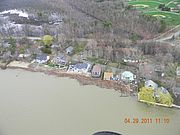
Lake Champlain reached new heights this spring, cresting at 103.2' on Friday, May 6th, shattering the previous record high level in May of 1869 (~102.1’). High water has inundated homes, displaced people, closed roads, triggered mudslides, and washed sewage, litter and debris into the lake. As of this writing, tons of sediment are flowing into Lake Champlain as wind, waves and high water erode stream banks and lakeshore. The Lake Champlain Ferry from Essex to Charlotte is closed because the landing is under water. The ferry at Crown Point is still running but Vermont roads to the ferry are closed on the south and are restricted to one lane from the north. Amtrak service from Montreal to Schenectady, NY has been interrupted. Traffic along the Route 2 causeway between Grand Isle and Colchester is reduced to one lane as work crews repair damage. Damages are expected to be in the millions. Both Governors Cuomo and Shumlin have declared states of emergency for portions of the lake shore. The Canadian Forces have been called out to assist in flooded areas north of the border... Read...
If you’ve had an address change recently, please send us an email so we can update your files and ensure you receive news on lake issues and LCC’s work. Our primary form of communication with members is through email. By mailing electronically we save time and resources and reinforce the stewardship ethic of our mission... Read...
Drip. Drip.Drip. It’s easy for the sound of a leaky faucet to become just part of the background noise in your household. With a large body of fresh, relatively clean water like Lake Champlain so close by, water conservation often doesn’t seem like a meaningful environmental issue. Yet there are environmental consequences of ignoring that drip... Read...
Join Aveda representatives, local stylists, and others for a four mile walk from LCC’s new digs at 208 Flynn Avenue along the Burlington bike path and back. The walk is part of Aveda’s global initiative that acknowledges the daily struggle of more than one billion around the world who do not have access to clean water. The Lake Champlain Committee is one of Aveda’s 35 global partners in this effort to raise funds and awareness about the need to protect and improve water quality... Read...
Stylists and students from O’Brien’s AVEDA Institute and O’Brien’s salons are teaming up to produce a fun night of hair and fashion! Students will create looks based on themes of Earth, Air, Fire and Water and dress each model head to toe in recycled garments. Doors open at 6:30 PM and the show starts at 7 PM on Tuesday, April 19th at Club Venue in Colchester on Porter’s Point Road (right near the Sunset Drive-In)... Read...
If you’re an active LCC member in need of outdoor gear, you might want to head to Eastern Mountain Sports for their annual Club Day. People who are involved with the Lake Champlain Committee can receive 20% off all national brand products and 25% off EMS products... Read...
The interior spaces of our new office provide opportunities to visually convey our mission of protecting lake health and access. We are looking for the following items to help our work and enhance the space: Flat panel computer monitors with 20 inch screen or larger, Laser desk top color printer, Tall lateral file cabinets (65 inches or taller) in good condition...
Read...
Thanks to the many people who assisted LCC with our move to 208 Flynn Avenue in Burlington. We couldn’t have done it without the generous time and support of Dave Farrington, Bren Alvarez and the wonderful building, painting and moving team from BrickBox Company who did the fit-up and oversaw our move... Read...
Lake Champlain Committee Staff Scientist Mike Winslow has been invited to serve on a workgroup guiding efforts to develop a revised Lake Champlain pollution loading model. The work group will provide input to the Environmental Protection Agency (EPA) and their consultants, TetraTech as they begin efforts to develop a new Lake Champlain clean-up plan (TMDL)... Read...
In Montpelier two bills are pending that could use citizen support. The first is a bill to limit the sale and use of lawn fertilizers (H.26). The bill would require homeowners to have a soil test that showed their lawns needed phosphorus prior to applying phosphorus fertilizer. Stores selling phosphorus fertilizer would have to display it separate from phosphorus-free fertilizer and provide education materials noting that phosphorus causes water quality problems... Read...
The Lake Champlain Committee has moved closer to the lake! We are now located at 208 Flynn Avenue, Bldng 3 – Studio 3-F, Burlington, Vermont. Please make note of our new address. We are in a larger office complex that will provide us with better space to do our work and are just a half mile away from one of our Paddlers’ Trail day-use sites at Oakledge Park... Read...
The U.S. House of Representatives has approved an aggressive plan to significantly reduce the budgets of critical federal environmental programs. The budget proposed by the House slashed the Environmental Protection Agency’s budget by almost $3 billion (or 30%) from 2010 levels and included a provision that prohibits EPA from continuing its work to clarify which waters are protected under the Clean Water Act... Read...
The Lake Champlain Committee is joining with the EPA’s WaterSense Program to promote Fix a Leak Week – an opportunity for homeowners to find and fix residential leaks that waste more than 1 trillion gallons of water in America each year. Leaks can also account for more than 10,000 gallons of wasted water in an average home every year – enough to wash nearly 10 months’ worth of laundry. Conserving water saves money, saves energy, and helps reduce nutrient pollution in Lake Champlain.
Why is water conservation important even in the Lake Champlain watershed where water seems so abundant?... Read...
